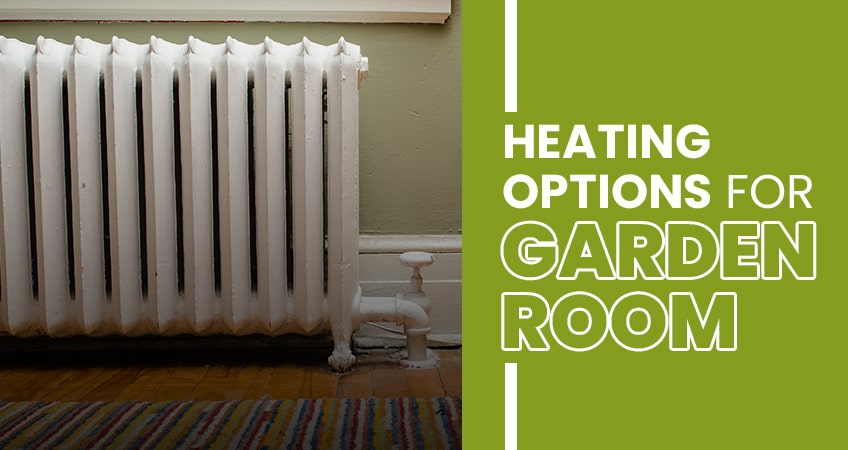If you’re lucky enough to own a garden room, you already know the joy of having a dedicated, versatile space away from the main house. Whether you use it as a cosy retreat, a home office, or even a yoga studio, one thing’s certain – proper heating is essential to keep it functional and enjoyable year-round.
At Garden Rooms 365, we specialise in designing bespoke, fully insulated garden rooms tailored to your needs, and in this blog, we’ll walk you through the best heating options for garden rooms. From practical choices to eco-friendly solutions, we’ve got you covered.
Factors to consider before choosing a heating system
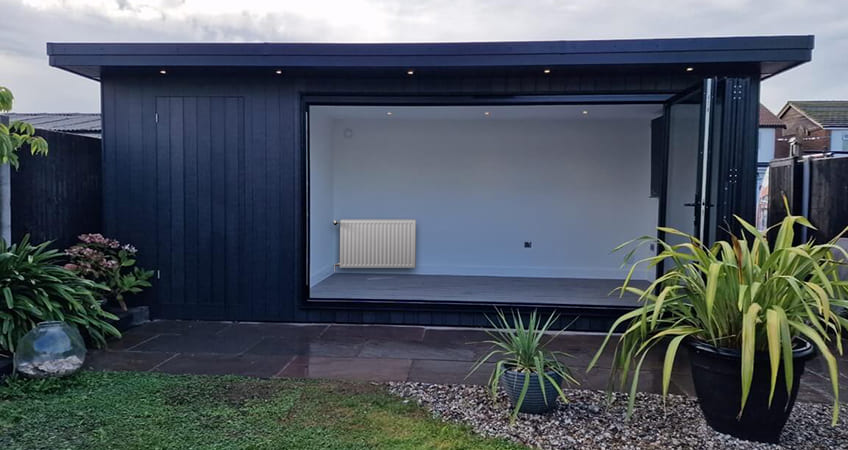
Before exploring specific heating options, it’s important to evaluate your unique needs. Here are a few factors to consider to ensure you make the best choice for your space.
Garden room size and insulation
The size of your garden room plays an important role when choosing a heating system. Larger rooms demand solutions with greater output to evenly warm the space, whereas smaller ones may require less heating power. Proper insulation is the foundation of efficient heating, reducing heat loss and cutting down on bills. (With Garden Rooms 365, rest assured your garden room comes fully insulated!)
Intended use of the garden room
How you use your garden room will also influence your heating needs. A home gym requires a quick, consistent heating solution, while an artist’s studio may benefit from a more ambient, long-lasting system.
Budget considerations
Heating solutions range from budget-friendly portable heaters to high-end, integrated systems like underfloor heating. Knowing your budget beforehand will help narrow your options while keeping costs in check.
Electric & gas heating options
Electric radiators
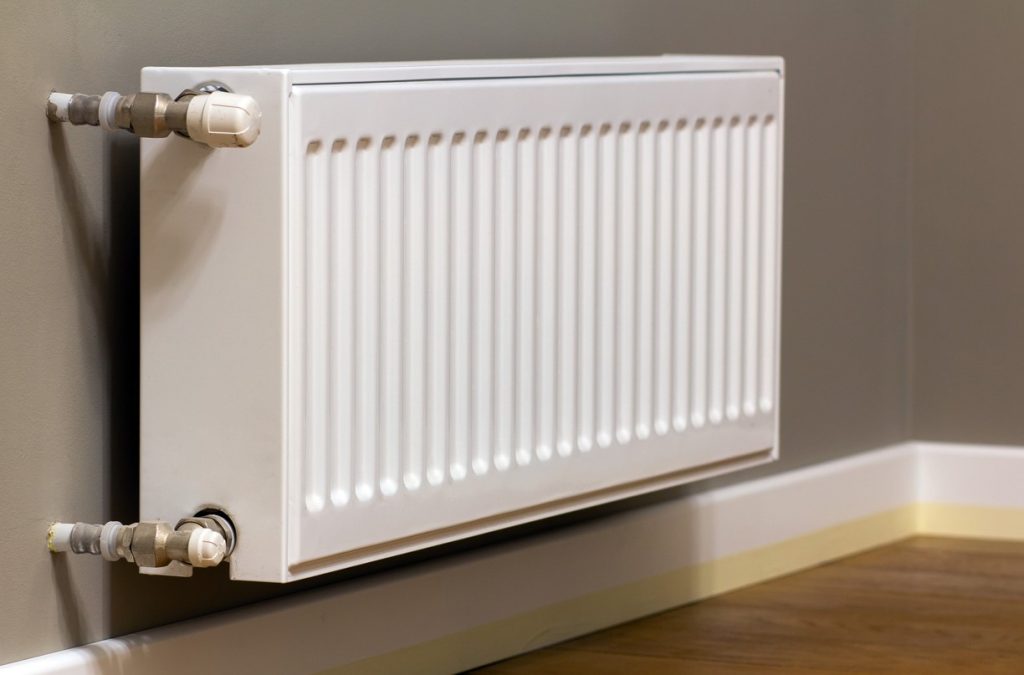
Electric radiators are a popular option, thanks to their energy efficiency and stylish modern designs. They’re easy to install without major remodelling, making them ideal for plug-and-play convenience.
Pros:
- Energy-efficient
- Simple to install
Cons:
- Can get expensive to run, especially without a programmable thermostat
Electric convection heaters
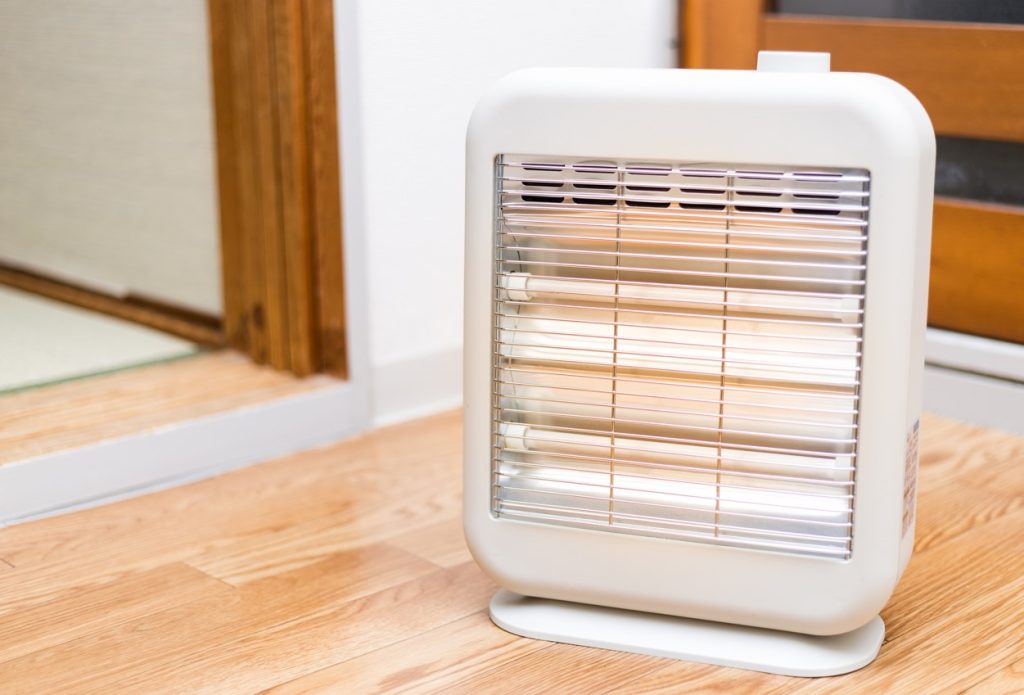
Portable electric heaters are a cost-effective and convenient choice. They’re perfect for quickly heating up small rooms or for occasional use.
Pros:
- Affordable and portable
- Ideal for small garden rooms
Cons:
- Less effective for larger rooms
- Can be energy-intensive
Bottled gas heating
A free standing gas heater is a versatile option that can be used in homes without a natural gas connection. It’s often used for cooking and hot water, but it can also be used for central heating.
Pros:
- Can be used in areas without access to natural gas
- Versatile (can be used for multiple purposes)
Cons:
- Requires regular refills of gas bottles
- Can be expensive to run depending on usage
Wood burning stoves
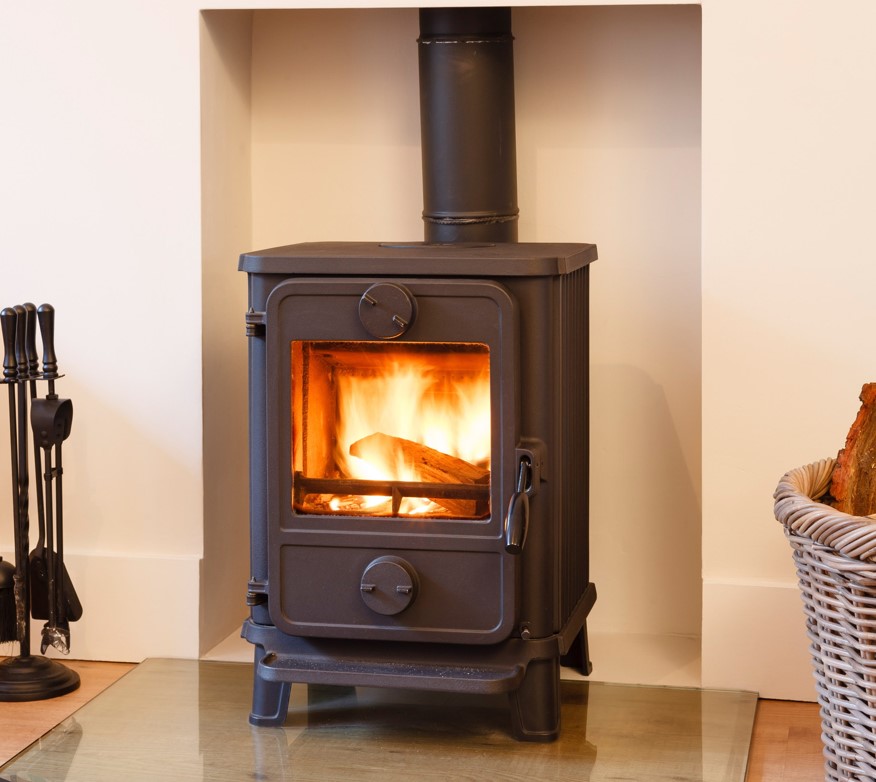
For a timeless and charming heating option, wood burning stoves are a classic favourite to heat a garden room. They bring a cosy, warm ambience that’s hard to replicate with other systems. However, they do require professional installation and proper ventilation (often a chimney on the garden room roof) to avoid toxic fumes circulating in the garden room. They may also not be the most eco-friendly option available.
Pros:
- Creates a cosy atmosphere
- Adds a traditional aesthetic
Cons:
- Requires maintenance and proper ventilation
- Not the most environmentally friendly option
Eco-friendly heating solutions
Solar heating
Solar panels are a fantastic eco-friendly heating solution if you’re looking to minimise energy costs in the long term. While solar heating is dependent on sunlight, it can significantly lower your environmental impact.
Pros:
- Sustainable and reduces reliance on the grid
- Long-term savings on energy bills
Cons:
- Dependent on sunny weather
- Higher initial installation costs
Heat pumps
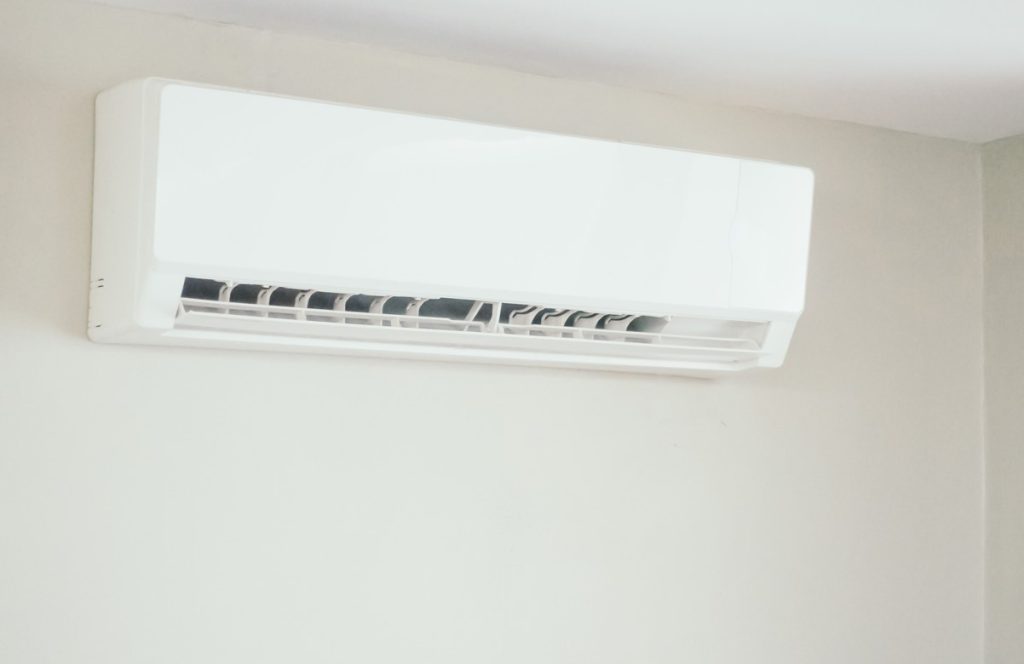
Another green solution, heat pumps are gaining popularity for their efficiency. They work by transferring warmth from the ground or air to heat your indoor space.
Pros:
- Highly energy-efficient
- Provides both heating and cooling
Cons:
- Low running costs, but higher up-front costs for installation
Infrared heating
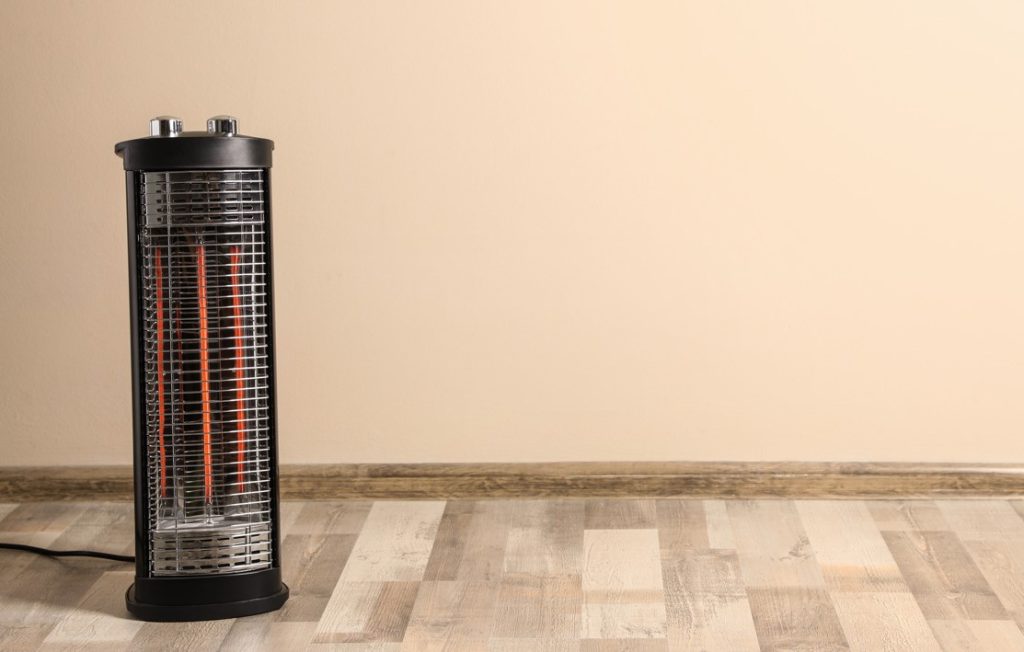
Infrared heaters use electromagnetic radiation to heat objects and surfaces directly, rather than heating the air. This method is gaining popularity as a sustainable and cost-effective solution for indoor heating.
Pros:
- Highly energy-efficient
- Provides targeted heating for specific areas
Cons:
- Limited distribution of warmth in larger spaces
Integrating underfloor heating
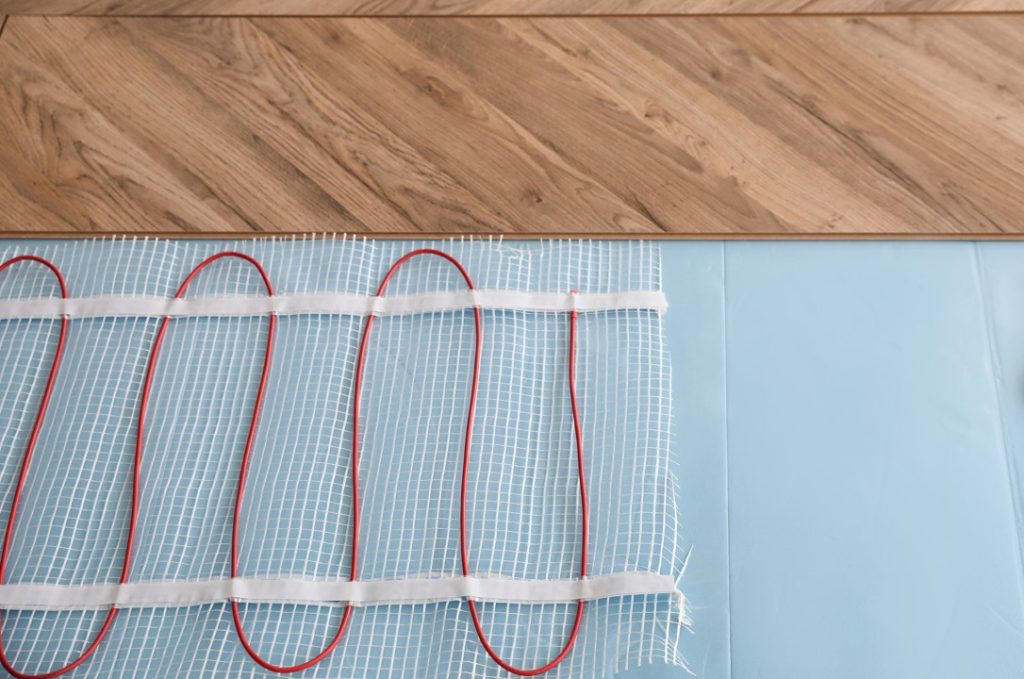
For an elegant and space-saving solution, underfloor heating is hard to beat. By distributing heat evenly underfoot, this system offers optimal comfort while keeping your garden room clutter-free.
Pros:
- Even heat distribution for maximum comfort
- Saves space by eliminating visible heaters
Cons:
- Expensive to install
- Requires professional installation
Smart heating solutions
Smart thermostats
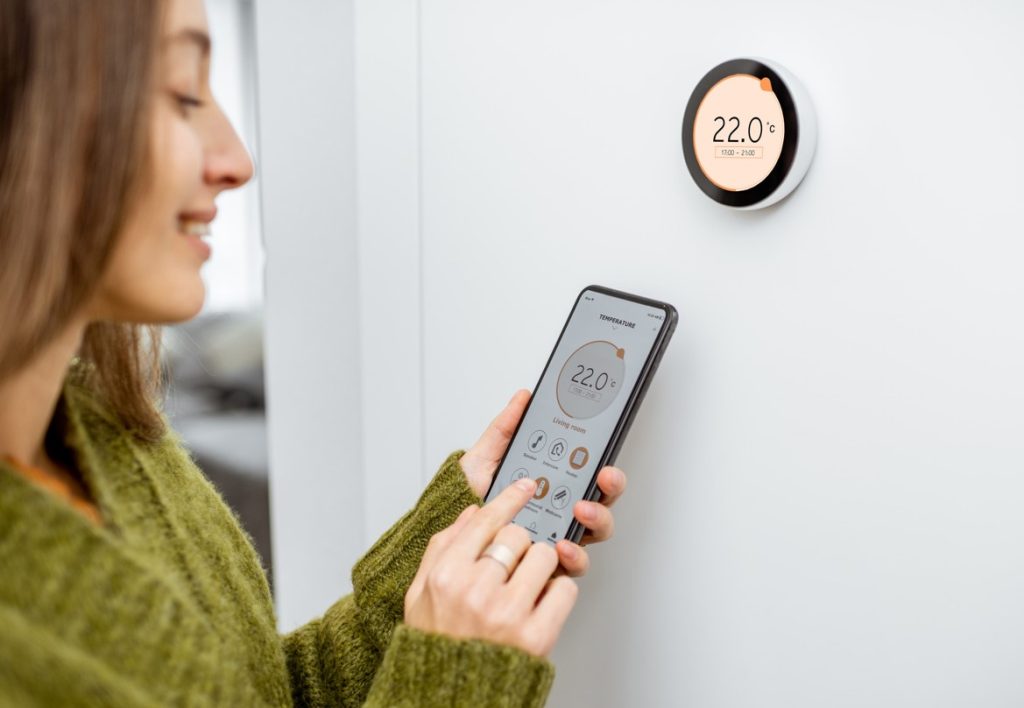
Smart thermostats make it easy to control the heating in your garden room remotely. Using an app on your phone, you can monitor and adjust the temperature, ensuring energy savings.
Pros:
- Remote control from your phone
- Improves energy efficiency
Cons:
- Initial installation costs
- May require smart home integration
Automated systems
Automated systems elevate heating to the next level by learning your preferences and scheduling heating times for minimal energy waste.
Pros:
- Fully optimised heating schedules
- Helps lower energy costs
Cons:
- Can be expensive to set up
Tips for maximising heating efficiency
Proper heating isn’t just about the system you choose. Making a few additional adjustments can go a long way toward keeping your garden room warm and energy-efficient.
Improve insulation
Ensure walls, floors, and ceilings are insulated to prevent heat loss. Garden Rooms 365 models come with fully insulated designs and heat retaining walls for optimal efficiency.
Upgrade to double glazed windows and doors
Opt for double- or triple-glazed windows and insulated doors for added thermal preservation.
Seal gaps and cracks
Don’t underestimate the impact of draughts! Seal any gaps with weather-stripping or caulk to retain heat.
FAQ
What is the best solution for garden office heating?
The best solution for garden office heating depends on your specific needs and budget. However, some popular options include electric heaters, infrared panels, underfloor heating, and wood burners. It is recommended to consult with a professional to determine the most suitable option for your garden office.
How cost effective are convector heaters?
Convector heaters are an affordable choice for occasional or supplemental heating but can become costly if relied on as a primary heat source. While their upfront cost is lower compared to other heating options, their electricity usage may result in higher long-term expenses.
What are some of the best air-conditioning options for garden rooms?
There are a few options for air-conditioning in garden rooms, depending on your budget and needs. Some popular choices for cool air circulation include portable air conditioning units, split-system air conditioners, and ducted systems.
Portable air conditioners are the most affordable option but may not be as effective in larger garden rooms. Split-system air conditioners provide both heating and cooling capabilities and can be more energy-efficient, but they do require installation by a professional.
Ducted systems offer centralised temperature control throughout the entire garden room but can be the most expensive option. It’s important to consider your specific needs and budget when choosing the best air-conditioning option for your garden room. So it is advised to research thoroughly
Can I get fully plumbed central heating in my garden room?
Yes, you can get fully plumbed central heating installed in your garden room. This type of heating system involves a boiler, pipes, and either water or oil-filled radiators that are connected to a central thermostat for temperature control. It is a great option for those looking for a more permanent heating solution in their garden room.
However, it is important to note that installing fully plumbed central heating will require professional help.
Finding your perfect heating solution
Heating a garden room doesn’t need to be complicated. By considering your space, usage, and preferences, you can choose a system that fits your needs and budget. Whether it’s a simple electric heater, a sleek underfloor system, or a cutting-edge smart solution, there’s no shortage of options to keep your garden room cosy.
Fully insulated as a standard with Garden Rooms 365
At Garden Rooms 365, our expertise in creating bespoke, fully insulated garden rooms means we can guide you to the perfect heating solution. Contact us today for expert advice or to start designing your dream garden room.


